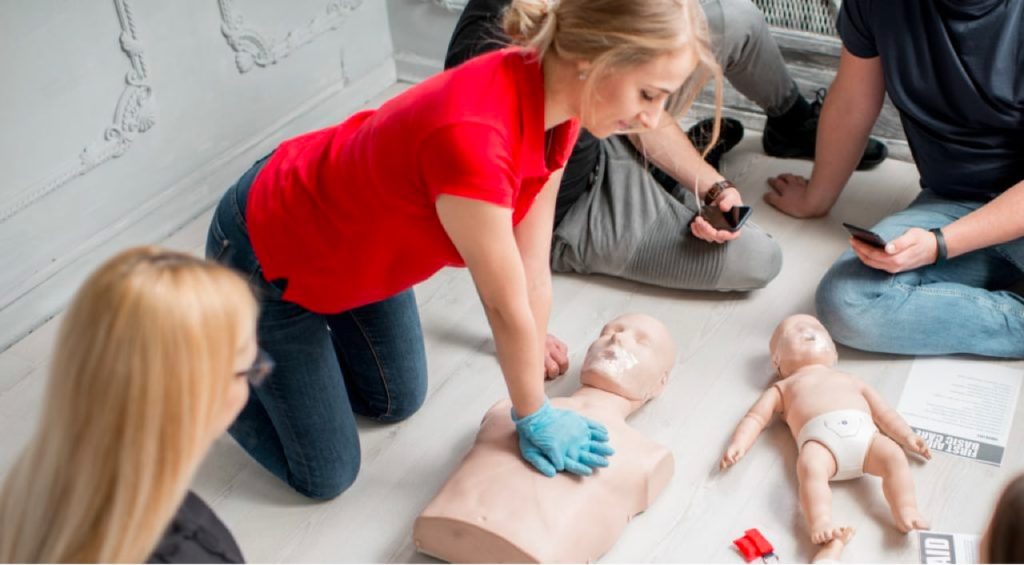Unlock the Power of CPR – Training That Saves Lives
Cardiopulmonary Resuscitation, more commonly known as CPR, is a critical life-saving skill that empowers individuals to make a difference in emergency situations. Often, it can mean the difference between life and death. CPR is a powerful technique that combines chest compressions and rescue breaths to maintain blood circulation and oxygenation in a person whose heart has stopped beating or is not beating effectively. The importance of CPR cannot be overstated, as it serves as a vital link in the chain of survival during cardiac emergencies. One of the most significant aspects of CPR training is its accessibility. CPR training is not just for healthcare professionals; it is a skill that anyone can learn, regardless of their age or background. From parents to teachers, from office workers to teenagers, CPR training is an invaluable tool for every member of society. The knowledge that you can make a difference in a dire situation is empowering and it instills a sense of responsibility and preparedness in individuals. Knowing how to perform CPR equips people to act quickly and decisively when faced with a cardiac emergency, significantly increasing the chances of survival for the victim.
 CPR training is not only about learning the techniques; it also emphasizes the importance of clear communication and cooperation in an emergency scenario. Effective CPR requires a well-coordinated effort between bystanders, which includes calling for help, starting chest compressions and administering rescue breaths. This teamwork ensures that the victim receives timely and adequate care until professional medical assistance arrives. CPR training not only teaches the physical skills but also the importance of staying calm and focused during a crisis, ensuring that individuals can act with confidence in high-pressure situations. Moreover, CPR training is a dynamic skill that evolves with advancements in medical science. The techniques and guidelines for CPR may change over time, reflecting the latest research and evidence-based practices. Therefore, regular CPR training and certification are essential to staying updated and proficient in life-saving techniques. It is a commitment to lifelong learning and a dedication to staying prepared for any cardiac emergency that might arise.
CPR training is not only about learning the techniques; it also emphasizes the importance of clear communication and cooperation in an emergency scenario. Effective CPR requires a well-coordinated effort between bystanders, which includes calling for help, starting chest compressions and administering rescue breaths. This teamwork ensures that the victim receives timely and adequate care until professional medical assistance arrives. CPR training not only teaches the physical skills but also the importance of staying calm and focused during a crisis, ensuring that individuals can act with confidence in high-pressure situations. Moreover, CPR training is a dynamic skill that evolves with advancements in medical science. The techniques and guidelines for CPR may change over time, reflecting the latest research and evidence-based practices. Therefore, regular CPR training and certification are essential to staying updated and proficient in life-saving techniques. It is a commitment to lifelong learning and a dedication to staying prepared for any cardiac emergency that might arise.
In today’s world, where cardiac events can occur suddenly and unexpectedly, the power of CPR training cannot be underestimated. It bridges the gap between the time a cardiac arrest occurs and the arrival of professional medical help. Every minute counts during cardiac emergency AHA class and CPR-trained individuals are the first responders who can initiate life-saving measures. They are the heroes who can restart a heart, restore blood circulation and give the victim a fighting chance at survival. In conclusion, CPR training is a priceless skill that saves lives. It empowers individuals from all walks of life to take action and make a difference during cardiac emergencies. Beyond the physical techniques, it instills a sense of responsibility, teamwork and confidence in individuals, ensuring that they can respond effectively when seconds matter most.

